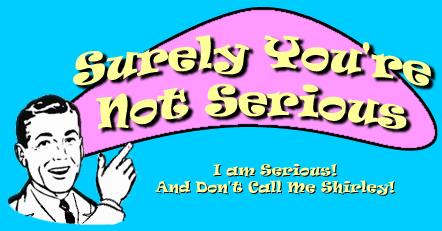I like simple. Simple is good. I like to take complex things and make them simple. I like analogies and metaphors that make complex ideas easy to understand. Most of all, I like to take complex arguments and wash off all the mud and blood and discover the simple, basic, easy-to-understand foundation behind the argument.
That’s what this post is about. Forget about tax strategies. Forget about the war in Iraq. Forget about evolution or abortion or global warming. Let’s get simple. What is the simple foundation of modern liberalism (or Liberalism with a big L)?
I strongly recommend that everyone should watch this video, no matter what your political alignment or religious affiliation (or lack thereof). It’s long (about 30 minutes if you skip the Q&A session at the end) and, because it’s on YouTube, it will take a while to load (I recommend you open it, hit pause, and minimize the window for about 10 minutes before you try to watch it.) but I think it is something everyone should see.
You may not agree with the guy. In fact, you may get pretty angry the longer it goes on, but what he says should at least make you think about (simply) what it means to be liberal and, more importantly, why you are or are not liberal.
Clicky: “How Modern Liberals Think”
Now, if you’re busy like me, I’ll break it down for you, but I still recommend watching the video when you have time.
Liberalism (with a big L) is founded on one simple thesis: Nondiscrimination.
For me to discriminate, I am employing my past knowledge, my up-bringing, my environment, etc. to discern what is “right” and what is “wrong”. This, at its foundation, is bigotry. No one can establish what is “right” because the only way you know what is right is to base it on your personal experience, your personal bigotry. I’ve always called this relativism, but we’ll stick with his terms.
Here’s the extrapolation of this idea that makes it appeal to so many intelligent people:
The attempt to be “right” is the core cause of all that is wrong.
If you don’t insist on being “right” there’s nothing to disagree about.
If you don’t disagree, you don’t fight.
If you don’t fight, there’s no war.
If there’s no war, there’s no poverty.
If there’s no poverty, there’s no crime.
If there’s no crime, there’s no injustice.
Thus any absolute (moral or otherwise) must be to blame for all the hate, war, poverty, crime and injustice in the world.
If you insist that there can be no absolutes (absolutely) then you require me to consciously ignore what I know to be true (because there is no truth). I must allow myself to believe that an 80 year old, white woman is equally likely to blow up an airplane as are six Imams who are shouting, “Allah Akbar” as they hand in their boarding passes. By questioning the Imam, I am discriminating (by definition, making a choice based on some absolute).
The next pitfall in the Liberalism thesis is the assumption that if “right” causes wrong, then wrong must be caused by “right”. Remember that absolutes lead to injustice, therefore any injustice must have been caused by an absolute. If A is rich and B is poor (injustice) then A must have done something evil at B’s expense to become rich. B is poor because B is a victim of A’s evil wealth hoarding. This ignores the fact that A worked hard for ten years to succeed and B spent ten years living on welfare and doing nothing. You must ignore those “facts” because facts imply discrimination. The only solution is to take A’s money and give it to B; equalize; level the field. A rational mind quickly sees that this is actually punishing hard work and rewarding laziness. But again, “rational” means discriminatory.
That was an awfully long post considering I started out talking about being simple, and I didn’t do nearly as good a job as the speaker in the video. I’m sorry. You’re right, which means I’m wrong. And if you think I’m wrong, I’m okay with that because at least in implies that you believe in right and wrong, so your not a relativist.






 Recently, Jess at
Recently, Jess at